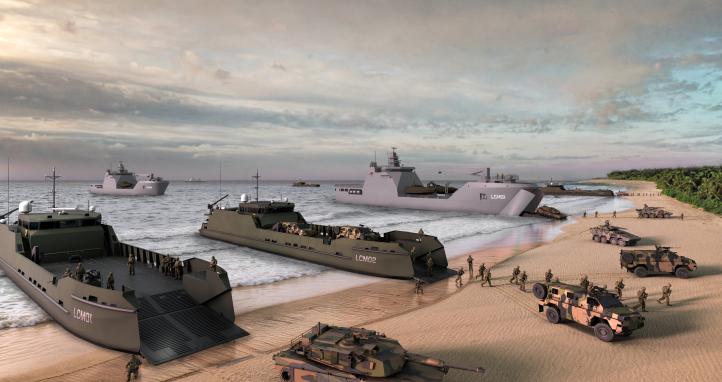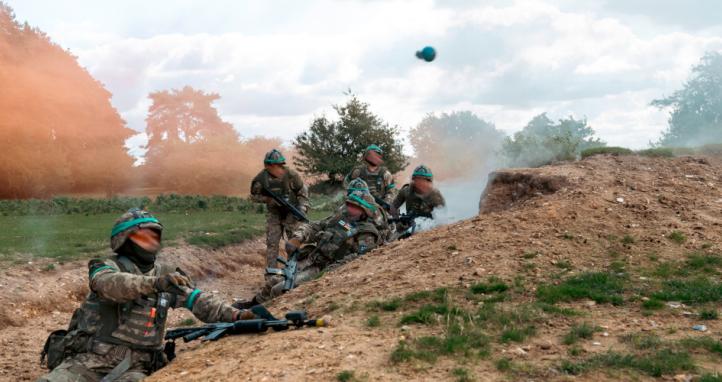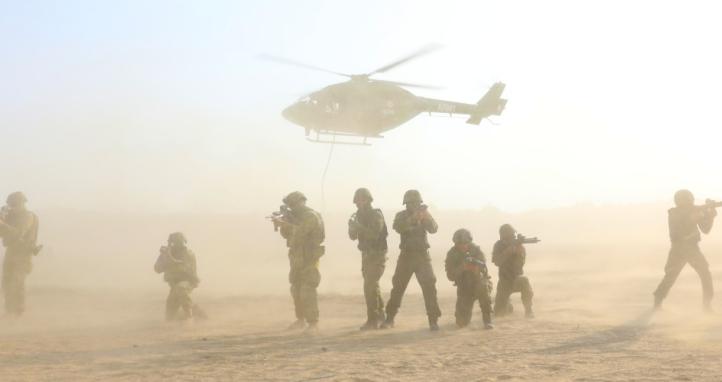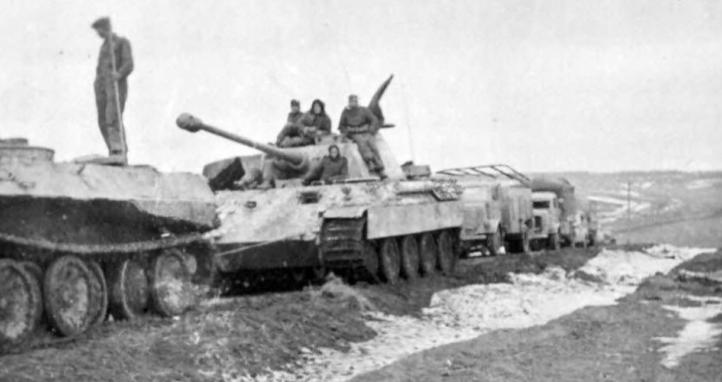To be prepared for war is one of the most effective means of preserving peace
– George Washington
The 2020 Strategic Assessment document states that Australia: 'now finds itself in a period of strategic competition, within a region ‘in the midst of the most consequential strategic realignment since the Second World War’. This environment has been described as paralleling the conditions of the Cold War, the main difference being the geographic epicentre is no longer Europe but the Indo-Pacific. Consequently, Government has directed Defence to implement a new strategic policy framework signalling Australia’s ability, and willingness, to project military power to deter actions against us.'
Defence’s current strategic objectives are to: 'deploy military power to ‘shape’ Australia’s strategic environment, ‘deter’ actions against our interests and, when required, ‘respond’ with credible military force.'
Beaumont (2020) states: 'the prospect of ‘open’ conflict is rising and that the Army, if not the country, must improve its ‘preparedness’ over the long term'. Army needs to be 'future ready', he says.
Defence’s ‘Preparedness Management Policy’, published in July 2020, states: 'we need to prepare ‘intellectually’, that is the capacity of our personnel to embrace complexity of thought, innovation and reason to solve strategic challenges.'
As we face these new and emerging threats, Australian soldiers need to understand this new reality and reorientate themselves to it, by thinking about what changes they can or need to make as individuals to assist Army.
Whilst many may argue that the lead up to the World War I had no bearing on the current environment, it is possible that there are many valuable lessons that can be learnt from past great power conflicts and the soldiers that served in them.
Sir John Monash
Arguably Australia’s greatest general, Sir John Monash, can provide some insight in preparing for potential conflict. Monash was a long time part-time citizen soldier who served in artillery, infantry, intelligence, and command positions. As a civilian, he studied and worked in engineering and law and saw war as a problem of engineering, likening it to the planning and execution of large scale projects like the bridges, railways, and roads he built.
Monash was a keen observer of world politics and closely followed what was happening in Europe. He understood the Prussian military mentality and determined that Germany was preparing for war and world dominance.
So what did Monash actually do to prepare for the war?
- World affairs – Monash kept up to date with what was happening in Europe and read widely about what was happening in Germany. He foresaw that war with Germany would be a large scale industrialised war with innovative weapons and technology being developed quickly, and that if Germany was not defeated in Europe they would eventually threaten Australia, as they already had developed bases in the Pacific and New Guinea.
- Travel – In 1910 Monash travelled to Europe and the US. He witnessed the massive armament program and rapid development of new technologies first hand in Germany and compared this to the more limited preparations he observed in England.
- Journals – Monash was keen to know and adapt new military ideas. To further this he subscribed to and read German military journals to understand their new tactics and ideas. He then translated and lectured on them. He also read the latest technical engineering journals from Germany. As an engineer, he helped revolutionise construction in Australia by the introduction of reinforced concrete technology. Presciently, Monash saw this as the future for building bridges and other structures and secured patents for it, which secured his economic future.
- Weapons and technology – Monash was taken with the close relationship between technology and development of modern weapons. He studied this in great detail. He wrote to German arms manufacturers and asked them technical questions about the weapons they were making including the quantities produced. He understood how technology was changing the nature of warfare.
- Languages – Monash spoke fluent German as his parents were Prussian Jews. His proficient German language skills allowed him to speak with German officers captured within his area. He also spoke French which allowed him to liaise with French allies.
- Fitness – Monash was overweight pre-war and realised he needed to lose weight and gain fitness to withstand the rigors of war, which he did over a number of months by way of weight training and 16 km walks.
- Military history – Monash read widely on the tactics used in previous wars and was considered an expert in wars of the previous 100 years. In 1912 he won the Army Gold Medal award for his analysis of tactics in one of the campaigns of the American Civil war.
- Doctrine – He published a number of documents including, in 1913, an Army training pamphlet titled “100 Hints for Company Commanders” and “3 principles of Arrangement for Battle” to assist commanders.
- Imagining the future – Monash spoke at Duntroon to officer cadets about the technological changes that would occur in warfare and he predicted that the next major war would be a mechanised one. Officers listening to his theories thought him to be ‘a nutty professor’. Pedersen (1985) states that he had ‘the power of imagination’.
- Innovation – Pre-war, Monash was a chairman on the Inventors Board and he encouraged inventors that came before the board. Early on in his military career Monash designed and built a training cannon with his CO. Monash was an early advocate, adaptor and practitioner for the ‘combined arms concept’, which he used to great effect at Hamel and other battles on the Western Front. He planned infantry assaults effectively co-ordinated with the use of heavy artillery, air support, and tanks, used smoke to obscure the attack, and set up ambulances at strategic locations close to the front to treat and evacuate the wounded. His planning also included making sure the troops were fed hot meals at the front lines.
- Independent thought – Monash spent time analysing problems and sought new and better methods of operating and incorporating technology. An example of this is during the battle of Hamel, where cross training between British tank crews and Australian infantry was arranged so they could develop a rapport. He also placed the infantry in charge of tanks, which improved their effectiveness.
- Planning and organising – Monash was meticulous in planning. He organised training in great detail and set strict timings. This attention to detail suited the battlefields of the Western Front, where there was limited manoeuvre warfare. It does, however, remain to be seen whether this level of planning and organising would have worked in the Sinai or Palestine with constant manoeuvre and initiative required at lower command levels. Monash held conferences with his officers before training and operations to generate ideas, to discuss possible problem areas and to make sure that all officers involved were fully cognisant of the plan. He was also an advocate for explaining the plan to the troops so they knew what was going to happen and their role. When he took command of the 13th Brigade before the war he lectured his officers that they had to make the Brigade, 'a complete machine, depending on mutual support, cooperation and of unity of thought and method'. His officers were required to study military history, text books and manuals. He taught them to learn how to take responsibility in the absence of orders and think constantly about how they might act in difficult situations.
For all Monash’s hard work and achievements, he did have challenges and setbacks during his wartime career. Some of the notable ones were his command failings as a Brigade Commander at Gallipoli, where during the August Campaign his troops took a wrong turn and were not in the correct position for battle. He was criticised for being too far from the front line to effectively lead his troops. Also, as a Corps Commander, at the battle of the Hindenburg Line Monash didn’t adapt well when the plan needed changing, with Serle (1985) stating the battle came ‘close to being a disaster’.
Monash rose from Private to General by applying himself and seeking lifelong learning. Fisher (2014) wrote: 'Monash’s preparedness to read widely and digest modern theories allowed him to break the mould if it constituted a better way forward'. Once in battle, he used this knowledge to great effect with his two aims: to secure victory and save the lives of his troops.
So did Monash’s preparations for war work? Pedersen (1985), in his analysis of leadership, wrote: 'Monash’s technical mastery of all arms and tactics, particularly surprise and deception, was unsurpassed among his contemporaries.'
Today's challenges
Beaumont (2020) states: “Army needs to develop its ‘intellectual capital’. This capital is intrinsic to the Army’s capability and capacity to plan for the future, just as it is crucial for its adaptability in a time of crisis. The development of its intellectual capital requires a combination of training and education, motivation, career management to ensure talents are rewarded but also exploited, and the opportunity for the brightest individuals to influence the preparedness approach of the future. Now is the time for mental energy to be directed to answering fundamental problems that will shape the Army of the next 10 years. Those who have formed ideas and opinions about what Army should do to face the future must describe how those thoughts should be actioned, and Army must be mature enough to hear their messages and act on them. This is serious collective work with the aim of guiding Army away from stagnancy and ‘unpreparedness’.”
The 'so what?'
So what does all this this mean for us as individual soldiers of any rank? We need to take a leaf out of Monash’s book, and if we are not already doing so, study tactics in past great power conflicts, become fluent in languages of our potential adversaries and allies, continually work on our fitness, develop our leadership skills, develop new TTPs, learn code, seize the opportunity to work with partners and allies (as we have never fought alone), and consider changing jobs to where our skills are better suited. Additionally, we should embrace new technologies and weapons, innovate and think about how they could be enhanced or used differently to greater effect, think about future conflict and what this may look like, and determine what changes we can make individually and organisationally, to better prepare ourselves for possible future conflict in this increasingly uncertain, complex and dangerous period. Take charge, go on.









